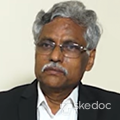Best Doctors for Asd Atrial Septal Defect Treatment in Khammam
4 Doctors for Asd Atrial Septal Defect Treatment found
Arogya Hospitals
Nizampet
8-2-32
Ramachandra Nagar Colony
Nizampet, Khammam
Get directions

OP Timings
Mon - Sat | 09:30 am - 04:00 pm |
Fee : 300
B K Bazar Colony
Near Bus Stand
Nizampet, Khammam
Get directions

OP Timings
Mon - Sat | 10:00 am - 03:00 pm, 04:00 pm - 06:00 pm |
Fee : 500
Akshara Cardiac Hospital
Wyra Road
Opp. Jammibanda
Venkatagiri
Wyra Road, Khammam
Get directions

OP Timings
Mon - Sat | 10:00 am - 04:00 pm |
Fee : 700
KHIMS Hospital
Nizampet
11-2-44, B K Bazar Colony
Opp. Baburao Petrol Bunk
Nizampet, Khammam
Get directions

OP Timings
Mon - Sat | 12:00 noon - 07:00 pm |









